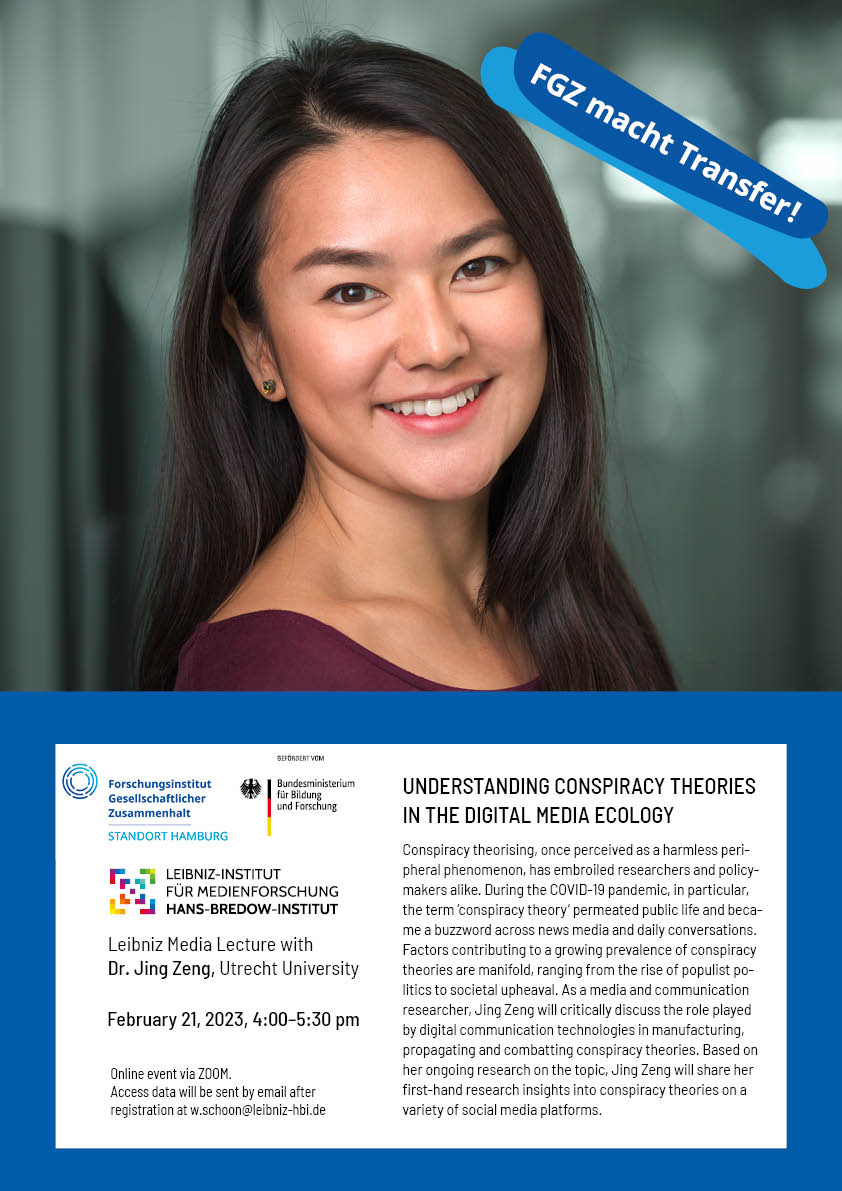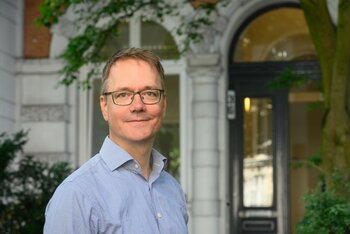Understanding Conspiracy Theories in the Digital Media Ecology
Zur Anmeldung (Link)
Die nächste Leibniz Media Lecture wird ausgerichtet vom Teilinstitut Hamburg des Forschungsinstituts Gesellschaftlicher Zusammenhalt. Dr. Jing Zeng von der Universität Utrecht spricht über die Rolle digitaler Kommunikationstechnologien bei der Herstellung, Verbreitung und Bekämpfung von Verschwörungstheorien.
PD Dr. Jan-Hinrik Schmidt übernimmt die Einführung. Die Veranstaltung findet auf Englisch statt.
Anmeldung
Die Veranstaltung findet online via Zoom statt. Nach Anmeldung werden Ihnen die Einwahldaten kurz vor Veranstaltungsbeginn per Mail mitgeteilt.
Zum Vortrag
Conspiracy theorising, once perceived as a harmless peripheral phenomenon, has embroiled researchers and policymakers alike. During the COVID-19 pandemic, in particular, the term ‘conspiracy theory’ permeated public life and became a buzzword across news media and daily conversations. Factors contributing to a growing prevalence of conspiracy theories are manifold, ranging from the rise of populist politics to societal upheaval. As a media and communication researcher, Jing Zeng will critically discuss the role played by digital communication technologies in manufacturing, propagating and combatting conspiracy theories. Based on her ongoing research on the topic, Jing Zeng will share her first-hand research insights into conspiracy theories on a variety of social media platforms.
Zur Person
Dr. Jing Zeng is Assistant Professor of Digital Methods and Critical Data Studies at Utrecht University. Her research concerns the sociocultural implications of digital technologies, with a particular focus on developing innovative digital methods for empirical research. Jing has written extensively on digital media platforms, around topics of misinformation, youth culture and online activism. Before joining Utrecht University, she was Senior research and teaching associate at the University of Zurich. She received her PhD from the Digital Media Research Center (DMRC) at the Queensland University of Technology, and her MSc from the Oxford Internet Insitute. She is also an affiliated researcher at the Max Planck Institute for the History of Science, Germany.


